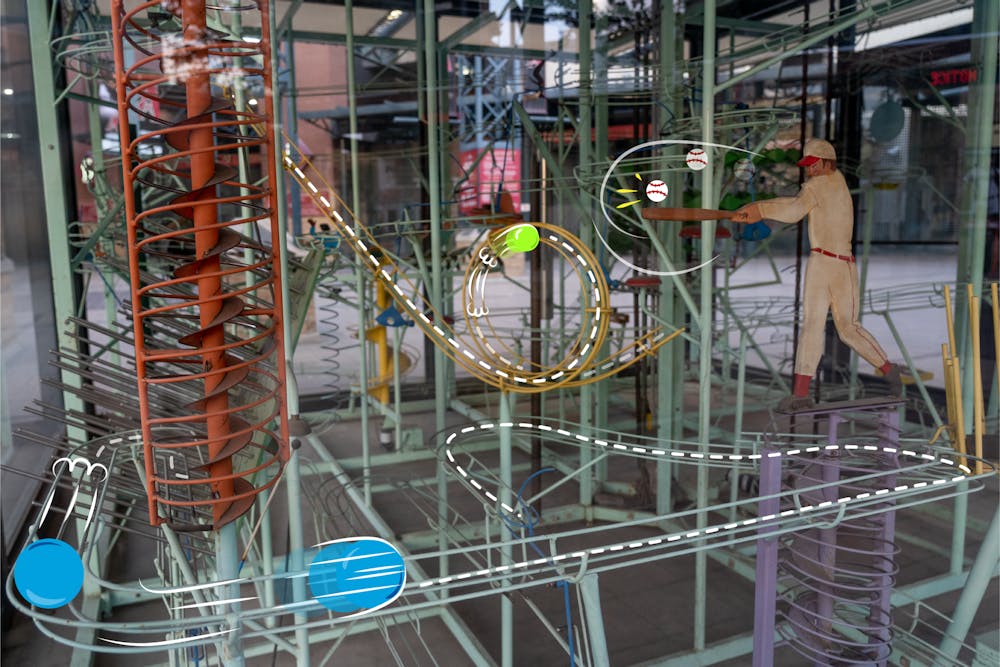With COVID-19 ushering a technological wave of innovation, there has been an increased emphasis on soft skills in the job market.
Soft skills are skills relating to how one works — teamwork, leadership, emotional intelligence (communication and conflict management), maintaining a growth mindset and showing initiative. While these are usually written off as something you learned in high school or picked up working in customer service, employers report they are consistently finding their new hires fall short of the mark.
Especially in a job market that's becoming increasingly saturated with degree-holding individuals, having or not having soft skills could be a deciding factor among suitable candidates.The competitive market will force graduates to look beyond their technical skills gained from college and adapt to competition that wants more than just the hard calculations.
If ASU fails to equip grads with the necessary tools to compete, they will face a bleak list of application rejections.
Employers hiring STEM applicants find it difficult to find suitable candidates that also possess strong soft skills in addition to their technical knowledge. Moreover, soft skills help demonstrate to employers that a candidate is more than capable of not only succeeding in whatever is on their resume, but as well as recognizing their potential.
Soft skills aren't only valuable in landing a job, but also in maintaining success during employment.
Keith Hjelmstad, president's professor at ASU's School of Sustainable Engineering and the Built Environment, resonates with the sentiment that engineers are generally not equipped with soft skills.
"There's no reason (STEM related courses) can't also be good development of soft skills," Hjelmstad said, "You have to know how to get along with people ... how to communicate, and most of what you do will be those things."
Hjelmstad has implemented soft skill workshops in his sophomore-level courses with the "The Mechanics Project," a new approach to teaching engineering.
The project reformed engineering mechanics classes, such as Dynamics (CEE 212) and Statics (CEE 210), by introducing "recitations" that emphasize using a unique approach to typical problems.
Recitations transform the way these courses are taught by using active engagement, allowing students to fundamentally understand complex concepts while encouraging soft skills development through group work and question discussion.
These recitations also grant insight into exactly where students struggle by providing multiple ways to learn course material. Hjelmstad's aim was to transform the way engineers are taught these subjects — shifting it from pure calculations and brute memorization to forming a specific mindset about engineering.
Outside the classroom, Edward Apraku, a senior studying civil engineering, said many of the soft skills he picked up came through community involvement.
"When you get closer to your junior and senior year and you work more in teams of engineers, which is awkward most of the time. Engineers are awkward," he said frankly. "I think (Fulton's School of Engineering) could do a better job especially in freshman or sophomore year in teaching ... those soft skills."
While ASU does provide undergraduate engineers with co-curricular courses to help develop soft skills, core courses should still teach aim to equip students with these skills — especially for freshmen.
These co-curricular courses encourage practical applications of engineering to community service or business endeavors and encourages student engineers to develop creative and entrepreneurial skills.
But most of those courses are optional. While labs and recitations can facilitate some development in teamwork and communication, the pandemic has put a damper on the way those courses are normally done.
Similarly, non-core ASU graduation requirements like Global Awareness and Cultural Diversity in the U.S. can often be taken care of by freshman year, or even by courses prior to coming to ASU (like APs or IBs). Furthermore, while some high school students may have been taught certain soft skills in more challenging courses, those skills don't necessarily translate well to a university-level education.
In a school with degrees as diverse as those found at ASU, there should be a greater emphasis on soft skills in STEM beyond one-and-done electives. Humanities, in particular, could be the key to incorporating soft skills in STEM focused majors by encouraging creative thinking and critical analysis. These are the kind of sought-after skills found in any job market.
Presently, STEM grads aren't getting these necessary skills despite increasing demand. If ASU has the resources to better equip their grads for the next wave of innovation, it ought to take advantage of them.
Reach the columnist at jkmiguel@asu.edu or follow @wolf1Ez on Twitter.
Editor’s note: The opinions presented in this column are the author’s and do not imply any endorsement from The State Press or its editors.
Want to join the conversation? Send an email to opiniondesk.statepress@gmail.com. Keep letters under 500 words and be sure to include your university affiliation. Anonymity will not be granted.
Like The State Press on Facebook and follow @statepress on Twitter.




